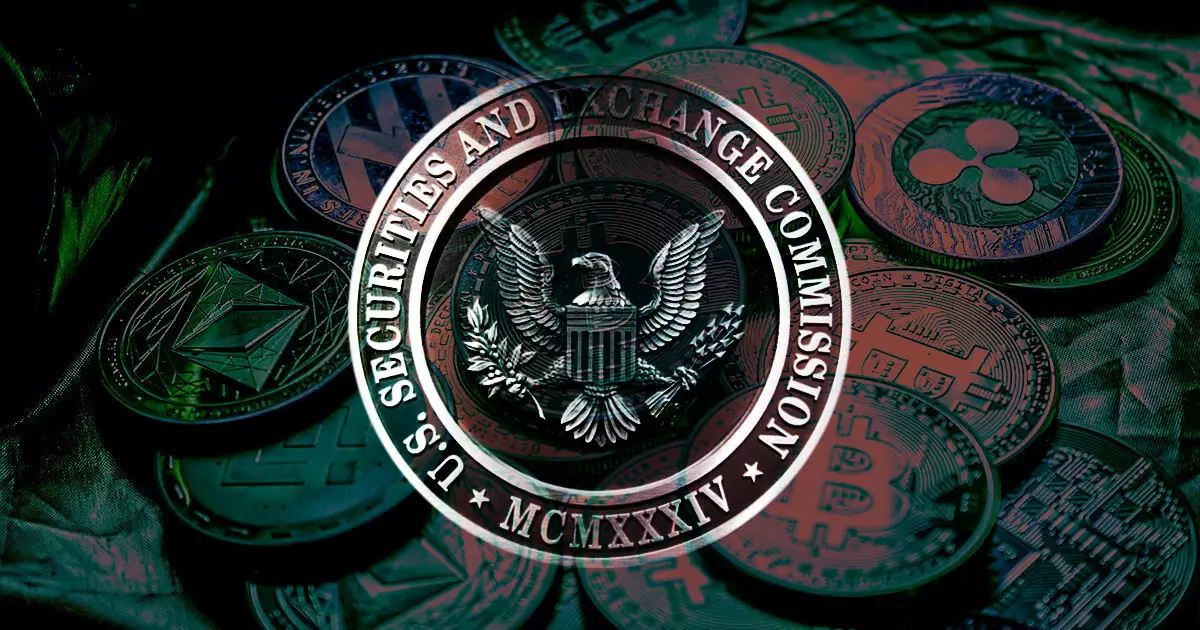The United States Securities and Exchange Commission (SEC) has recently escalated the legal battle against Binance by filing an amended complaint in the District of Columbia. This new filing introduces important procedural updates and substantial modifications compared to the original complaint. Such alterations indicate that the SEC may be attempting to fortify its legal position in light of mounting criticisms regarding its regulatory clarity within the cryptocurrency space.
The amendment, sanctioned earlier this morning, follows the provisions under the Federal Rule of Civil Procedure 15(a)(2), which allows for the modification of pleadings with permission from the court. Accompanying this motion is a detailed memorandum outlining the justifications for the changes, a proposed revised complaint, and a redline document illustrating the specific alterations made. It is evident that the SEC is working diligently to refine its legal strategies in an unpredictable regulatory environment.
Chief Legal Officer at Coinbase, Paul Grewal, commented on the SEC’s revised filing through social media, noting a noteworthy admission within the amended complaint: the SEC’s regret over its historical assertions that tokens themselves constitute securities. This revelation opens a door to questioning the integrity of the SEC’s long-standing beliefs and assertions concerning the regulation of cryptocurrencies. Grewal’s comments imply a criticism of the SEC’s long-term enforcement actions, suggesting that the agency has been interpreting and applying regulations in a manner that could mislead the court and the public.
One major focal point in Grewal’s commentary is the SEC’s ambiguous stance regarding Ethereum (ETH) transactions as compared to its approach to other digital assets. He implores the SEC to clarify why ETH transactions are deemed significantly different from those involving other cryptocurrencies. This inconsistency raises concerns about equitable treatment within the regulatory framework, emphasizing the need for transparency and guidance on what constitutes a security in the cryptocurrency ecosystem. According to Grewal, the SEC appears to adopt a selectively vague approach, where clarity is only achieved post-factum, often through litigation.
The amended complaint also refers to relevant documents, notably including an order that denies the defendants’ earlier motion to dismiss in a related case involving Kraken. This move marks a procedural strategy that places added pressure on Binance and its co-defendants, who must respond to the SEC’s new filing by October 11. This deadline could yield a significant pivot in the legal standoff, as both sides prepare for a potentially contentious legal battle.
The Broader Implications for the Crypto Industry
The SEC’s ongoing scrutiny of Binance underscores a larger trend of regulatory pressure faced by cryptocurrency platforms in the United States. The agency has maintained that Binance operated unregistered securities exchanges, resulting in allegations of misleading investors. Binance has firmly rejected these allegations, vowing to comply with regulations and cooperate fully with oversight bodies. This situation exemplifies a larger conflict between regulatory bodies and the fast-paced, often opaque world of cryptocurrency.
Legal analysts posit that the SEC’s amendments to its complaint may reflect its intent to address ongoing criticisms regarding its lack of transparent guidelines. Various industry stakeholders have expressed frustration over the SEC’s enforcement strategy, which many view as deficient in providing clear definitions of securities in the context of digital assets. As cryptocurrency grows increasingly integrated into the mainstream financial system, the demand for consolidated and clear regulatory guidelines becomes more urgent.
As the clock ticks toward the October deadline, the outcome of this case is poised to have significant implications not only for Binance but for the cryptocurrency industry at large. Given the increasing recognition of cryptocurrency regulation as a pivotal issue ahead of the upcoming U.S. elections, stakeholders are eager for clarity and structured guidance. The necessity for definitive regulatory frameworks is at the forefront of industry demands, moving away from retroactive enforcement as the primary regulatory mechanism.
The SEC’s amended complaint against Binance injects a sense of urgency into the ongoing legal discussions surrounding cryptocurrency regulation. The industry awaits not just the court’s response, but also the possibility of a more structured regulatory environment that addresses the unique challenges of digital assets without the inherent ambiguity present in current approaches.


















